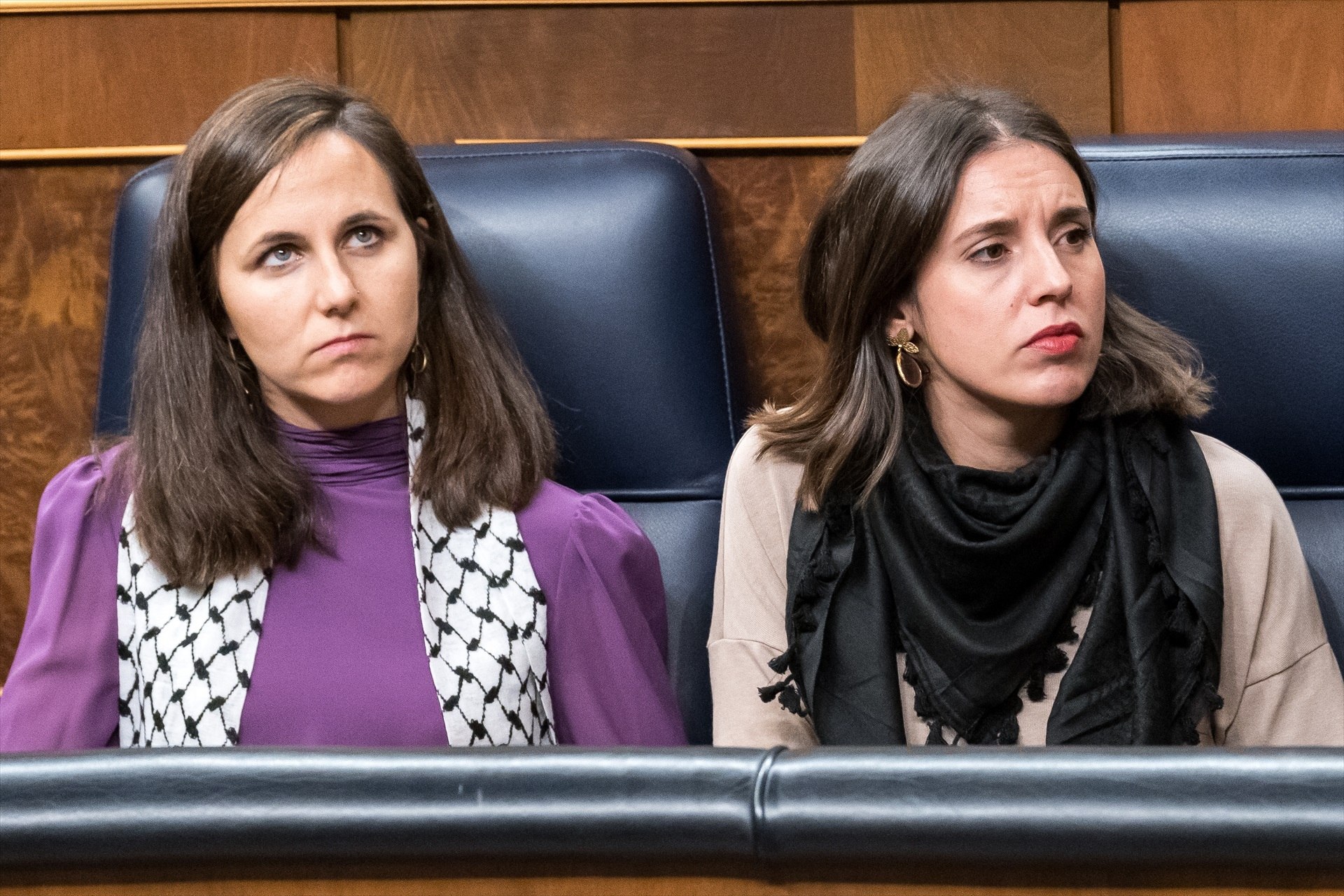The rupture on the Spanish left between Podemos and Sumar has been consummated. For many months, well before the coalition agreement that the two parties signed in June to compete together in the snap election of 23rd July, it had been clear that the relationship between the two political forces was tense, but this Tuesday it definitively snapped: Podemos deputy Javier Sánchez Serna announced in a press conference that the five MPs for the original Spanish 'alternative left' party will now leave the parliamentary group of Sumar and move to the mixed group in Congress to guarantee their "ability to practice politics" in the lower house and to "continue promoting the brave measures that the social majorities need".
"We have tried to do everything possible from the parliamentary group of Sumar, but it has proved impossible", lamented Sánchez Serna, who affirmed that "the rules are not the same" for all members of the coalition and that, up till now, Podemos "has not been allowed to do politics in terms of taking part in debates or presenting legislative proposals".
Sánchez Serna, who in the last legislature was a member of the Congressional Bureau, stressed that Podemos will continue "to work with total political autonomy to recover the unity of the democratic block and to govern again in coalition" and that the party will use its votes "to try and promote brave and ambitious measures that improve the lives of working families" in the Spanish state.
A relationship that began on the wrong foot
The decision by Podemos to break with the broader Sumar platform comes on the day that the Spanish Congress debated the situation in Israel and Palestine, in a session in which the party's five MPs were unable to take part. Sánchez Serna denounced that Sumar censured "the voice that has made the most specific demands for the Spanish prime minister to move from words to deeds".
Mutual suspicions between Sumar and Podemos have existed as long as Yolanda Díaz's left-wing group has. In April, when Sumar held its launch, Podemos accused the new platform of not being a "truly transformational left" and the question of their future electoral relationship did not seem straightforward. Pedro Sánchez's decision to call a snap general election on July 23rd then put the two parties under pressure. Podemos ended up agreeing to run in coalition with Yolanda Díaz's platform, but Irene Montero, who was acting equality minister at the time, was left off the electoral lists. More recently, in the configuration of the coalition government between the PSOE and Sumar, Podemos has been left without any representative in the cabinet, after the departure of Montero and Ione Belarra, party secretary general and minister of social rights in the last Spanish legislature.
Podemos has five deputies in Congress, who until now have been under the parliamentary umbrella of Sumar and who will now move to the mixed group - the Spanish Congress grouping which is made up of all those parties not large enough to have a group of their own - in this legislature, the Galicians of BNG, UPN of Navarra and the Canarian Coalition. The Podemos parliamentarians' move to the mixed group leaves them outside the party discipline of the Sumar group and raises the possibility that they might vote against legislative proposals of the Pedro Sánchez government. The Spanish government had the support of 179 deputies for the investiture, with the absolute majority at 176. With the departure of the five Podemos representatives, the Sumar caucus now consists of 26 MPs.

